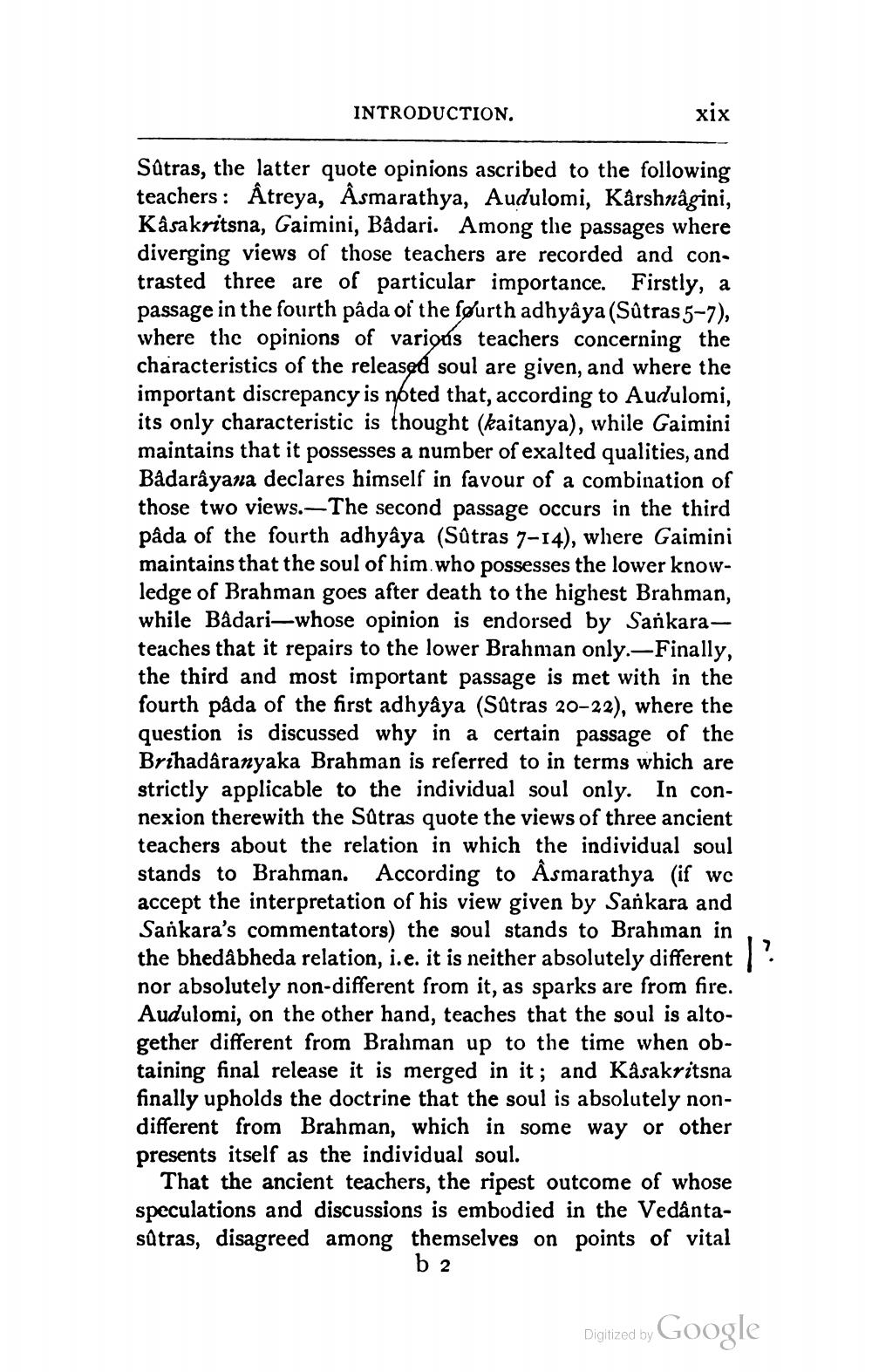________________
INTRODUCTION.
xix
Satras, the latter quote opinions ascribed to the following teachers: Atreya, Åsmarathya, Audulomi, Kârshnâgini, Kåsakritsna, Gaimini, Badari. Among the passages where diverging views of those teachers are recorded and contrasted three are of particular importance. Firstly, a passage in the fourth pâda of the fourth adhyâya (Sûtras 5-7), where the opinions of various teachers concerning the characteristics of the released soul are given, and where the important discrepancy is noted that, according to Audulomi, its only characteristic is thought (kaitanya), while Gaimini maintains that it possesses a number of exalted qualities, and Bådarayana declares himself in favour of a combination of those two views.—The second passage occurs in the third pâda of the fourth adhyâya (Sûtras 7-14), where Gaimini maintains that the soul of him who possesses the lower knowledge of Brahman goes after death to the highest Brahman, while Bådari-whose opinion is endorsed by Sankarateaches that it repairs to the lower Brahman only. Finally, the third and most important passage is met with in the fourth påda of the first adhyâya (Satras 20-22), where the question is discussed why in a certain passage of the Brihadaranyaka Brahman is referred to in terms which are strictly applicable to the individual soul only. In connexion therewith the Satras quote the views of three ancient teachers about the relation in which the individual soul stands to Brahman. According to Asmarathya (if we accept the interpretation of his view given by Sankara and Sankara's commentators) the soul stands to Brahman in the bhedâbheda relation, i.e. it is neither absolutely different nor absolutely non-different from it, as sparks are from fire. Audulomi, on the other hand, teaches that the soul is altogether different from Brahman up to the time when obtaining final release it is merged in it; and Kåsakritsna finally upholds the doctrine that the soul is absolutely nondifferent from Brahman, which in some way or other presents itself as the individual soul.
That the ancient teachers, the ripest outcome of whose speculations and discussions is embodied in the Vedantastras, disagreed among themselves on points of vital
!
b
2
Digitized by Google
Digitized by




